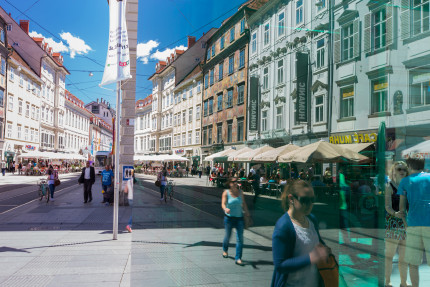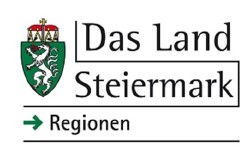Joint forces for “Mobility as a Service” in the FUA of Graz, Austria
The global mega-trend digitalisation offers new mobility perspectives. The City of Graz aims to use the possibilities of new digital technologies to make sustainable transport more attractive. Therefore, the city focusses on the realisation of the “Mobility as a Service” (MaaS) concept. The idea of “Mobility as a Service” is to integrate different (public and private) mobility services into one online platform to allow users to plan, book and pay intermodal trips via this platform.

© Graz Tourismus - Harry Schiffer
Already in 2018, the City of Graz has started working on this topic. The EU-Unit of the City of Graz was represented in a national strategic MaaS process (MaaS Made in Austria). In 2019, a strategy paper on MaaS including a 10-point programme was developed with support of the Central Europe project SOLEZ. In addition, a Regional Steering Group on Mobility as a Service was founded with the help of SOLEZ as well as the engagement of the Regional Management Metropolitan Area of Styria. Nowadays, this MaaS-Steering group sets the basis for a multi-level governance cooperation. The alliance of six different stakeholders from city, regional and state level is the backbone for strategic decision making on this topic. Key actors of this Steering Group are implementing the vision of a user-friendly, multimodal mobility platform.
The six members of the Steering Group are:
- City of Graz, Transport Planning Department and Unit for EU-Programmes and international cooperation
- Holding Graz Public Transport operator
- Regional Management Metropolitan Area of Styria
- Provincial Government of Styria
- Styrian Public Transport Association
Joint forces help to update the existing multimodal app Graz Mobil to a state-of-the-art MaaS platform. This platform steered by public authorities shall offer access to private and public mobility services and shall be used as a one-stop-shop for mobility in the functional urban area of Graz and beyond.
The CE-project Dynaxibility4CE offers a great opportunity to support this process. By means of know-how transfer of European good-practice examples, experiences from other cities will be integrated into the regional process. An interactive workshop on incentives to promote MaaS services was already held in June 2020. Furthermore, additional MaaS-aspects will be analysed. For instance, a feasibility study on mobility flat rates (mobility packages) is about to start in mid-November 2020. A working group composed by the City of Graz, Holding Graz and one local research partner will assess the economic and technical possibilities of this innovative tool. This study is also supported by regional funds within the Styrian Regional Development Law 2018.


